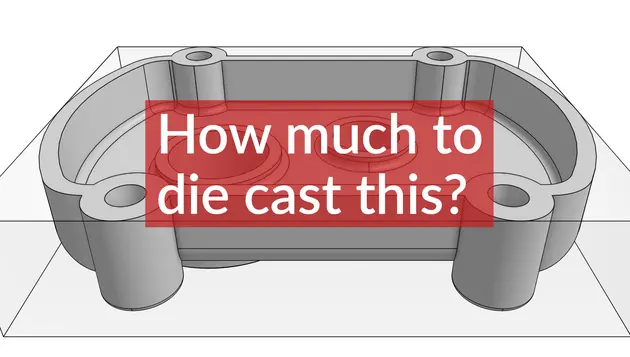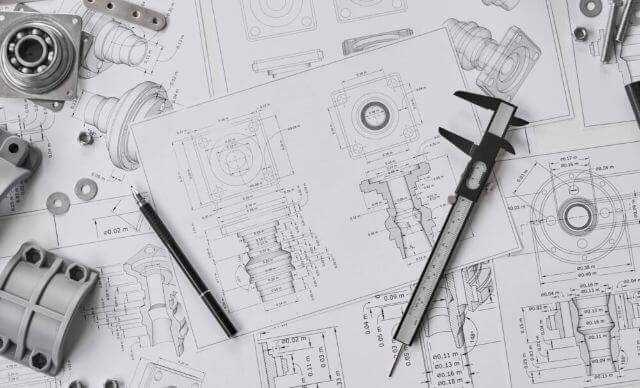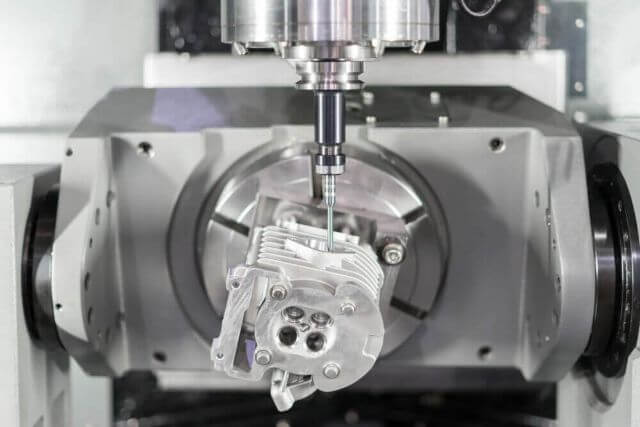Precision Machining
Precision machining is given to a subset of CNC machining where high precision is critical. The accuracy of the final part needs to be perfect down to +/-0.05mm and beyond. Precision machined components can be found in everyday products and specific, high-end products, where precision is critical, such as aerospace parts or medical equipment.

What is Precision Machining?
Precision machining is a manufacturing process that involves removing material from a workpiece to achieve tight tolerances and fine finishes. Utilizing advanced machinery and tools, it ensures components are produced with high accuracy and consistency, making it essential for industries where precision is paramount, such as aerospace, medical, and automotive.
{{cta-banner}}
How does precision machining work?
Precision machining technology works by utilising CAD software (computer-aided design) to form a highly accurate part to a high standard of finish. The precision machining process uses precise CAD files PDF drawings. The CAD software then inputs instructions into the machine, which directs how the material will be cut and shaped. Using precision engineering, a program can instruct a cutting tool to deliver exact results for parts of various tolerances. Due to the lack of human involvement towards the end of the process, there is little room for human error, with all instructions inputted from the computer-aided program directly to the cutting tools. The result is a highly functional, computer-controlled machine, creating a part that has been human-engineered to a high quality.

What can precision machining be used for?
Precision machining technology is constantly evolving, allowing tighter, easily repeatable tolerances to be held. For this reason, you can find precision engineered parts and equipment in almost every sector because of its reliability and ability to mass produce products to such a continually evolving high standard. In particular, precision machined parts are regularly used in the aerospace industry and the medical industry due to the consistently high levels of accuracy of CNC machined parts.
What materials are used in precision machining?
Precision machining involves the process of subtractive machining, which can be achieved through various CNC processes, including milling, turning, or multi-axis machining such as 5-axis machining. You can read more about the CNC machining processes in our guides below:
Multi-axis CNC machining guide
Top tip:
You can also read our guide to types of CNC machines here for more information on what kind of CNC machine is best suited to your product.
CAD and precision machining
CAD has played an integral role in the widespread growth and popularity of precision machining because it can ensure far more accuracy than human-led processes alone. Because the machines and cutting tools are driven by instructions inputted purely by computer numerical control, there is far less chance of error in the production stage of the precision machining process. The use of automation is also a primary factor in the cost-effectiveness and consistency that precision machining offers companies. Engineers should also be aware, however, of the importance of ensuring high accuracy in the design stage, as the engineer’s drawings and knowledge of CNC machining still form the basis for achieving the required precision.
Advantages of precision machining
✅ High accuracy
Precise cuts and a highly accurate final design can easily be achieved with precision machining. All the instructions input into the CNC machine cutting tool are driven from automation rather than being manually input. CNC machines are designed and built to function to extremely tight specifications, and creating and designing machined parts are very popular for this reason.
✅ Cost savings
The automated precision machining process can make the cost of precision machined parts more accessible to more industries. A machine can repeat the cutting process with speed and accuracy once an initial design has been signed off. Without human intervention, production can run 24 hours as it does not depend on shift patterns. Additionally, there are no outgoing labour costs, as the machine can complete the job with minimal supervision once the initial samples have been approved.
✅ Efficient
Another benefit of precision machining is its high efficiency and output levels. Previous designs can be saved and re-used, and CNC machines will follow coded instructions exactly; this saves time, and you can be sure of the outcome. High efficiency like this in the production stage gives manufacturers and clients greater scope, with an increased number of parts able to be manufactured in a short amount of time. With an additional reassurance that these parts will be of incredibly high accuracy, the automated process can increase production, creating pieces at a greater speed than human-led processes.
✅ Safe
The automated process removes the need for manual labour involvement, and is more than just cost-effective. There are a lot of concerns and industry standardised processes involved in manufacturing to ensure that the health and safety of workers are ensured. Running these machines to the level and speed expected would require a lot of considerations regarding human safety. CNC machines can improve human safety significantly if used correctly.
✅ Less waste
There is less chance for scrappage when engineers utilise the exceptionally high accuracy of precision CNC machining and its repeatability. Some of the best CNC machining companies aim to make parts within spec 99% of the time. There is always the chance to improve this further, and the advantages precision CNC machining offer can help achieve less wasted parts.
✅ Consistent
Once the precision-engineered design has been finalised using CAD software, no elements of the design change. This means that parts can not only be mass-produced to high accuracy to the final design specification, but they can also be mass-produced at an incredibly consistent level of output and quality. The CAD program inputs the same code into the machine for each part, resulting in uniform, mass-produced, precision machined components and products.
✅ Easier to test prototypes
With precision machining, businesses can explore more niche ideas and concepts faster. If a company already possesses the required technology, small production runs of prototypes and R&D projects can be given more scope than other production processes. Functional prototypes can then be used successfully in expanding a product line or service for a company.
Disadvantages of precision machining
❌ Startup CNC machine cost
Despite the capability of CNC machining to provide a cost-effective, 24-hour, non-stop manufacturing process, the up-front costs required to purchase a CNC machine are extensive and unobtainable to many. As a result, subcontracted CNC machining services, such as those provided at Get It Made, are popular within the manufacturing industry. However, this does ensure you do not own your means of production.
❌ Size of parts manufactured
A further potential disadvantage of CNC machining is the size limitation it imposes for potential manufactured parts. The larger the part placed into the working area, the greater the stress is placed upon the machine, increasing the possibility of distortion. To avoid complications such as this, specialist tool operators may be required to achieve the desired results of larger parts, presenting a potential additional cost. The necessity of confirming all design measurements prior to its manufacturing is vital in ensuring it is suitable for this machining process.
❌ Loss of traditional skills
Many of those working within the engineering industries are growing increasingly concerned with the priority afforded to teach students how to operate CNC machining, claiming that traditional skills are being lost in the process. It is feared that vital engineering and mathematical skills are being overlooked in favour of learning how to operate digital precision machines. Not only does this harm the long-term prospects of young engineers who are left with a one-dimensional skill-set, but it also ensures that clients are left with less-knowledgeable engineers to contact regarding their orders, and any potential concerns they may have.
Precision machining services
Get It Made’s precision machining services vary, including CNC turning, milling, and five-axis machining. You can discover our range of CNC Machining services here for precision machined parts, or contact us directly today for a free 24-hour quote.












.webp)








